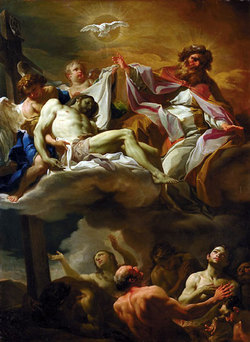1 Comment
4/17/2024 11:24:34 am
I wanted to express my gratitude for your insightful and engaging article. Your writing is clear and easy to follow, and I appreciated the way you presented your ideas in a thoughtful and organized manner. Your analysis was both thought-provoking and well-researched, and I enjoyed the real-life examples you used to illustrate your points. Your article has provided me with a fresh perspective on the subject matter and has inspired me to think more deeply about this topic.
Reply
Leave a Reply. |
Categories______________
The Inerrency of Scripture
The Love of God
The Fear of the Lord
The Question of Evil
Understanding the Atonement
Homosexuality and the Bible
Reincarnationism
Open Theism
Answers to Objections:Has God Rejected Israel:
God's Glorious Plan for the Ages
The Manifest Sons of God
The Trinity and the Deity of Christ
Eternal Preexistence of Christ
Preterism vs. Futurism
The Two-Gospel Doctrine Examined
|

